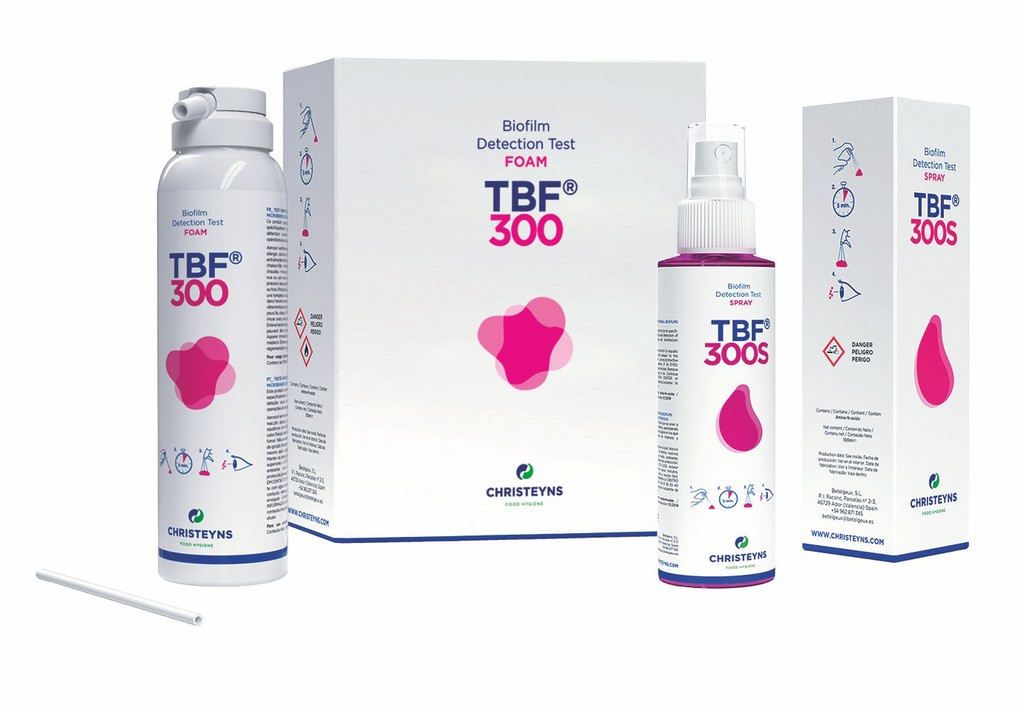

|
Chris Shaw
Editor |
| Home> | HOSPITAL HYGIENE | >Antimicrobial products | >Tackling biofilm detection in the food industry |
| Home> | CATERING & FOOD HYGIENE | >Equipment & Services | >Tackling biofilm detection in the food industry |
| Home> | CATERING & FOOD HYGIENE | >Legislation | >Tackling biofilm detection in the food industry |
Tackling biofilm detection in the food industry
21 January 2020
Chemicals specialist, Christeyns Food Hygiene, has launched a biofilm detection product to aid safety and quality in the food supply chain.

According to a report published by the European Food Safety Authority (EFSA) and the European centre for Disease Prevention and Control (ECDC) in December 2018, there were 5079 foodborne and waterborne outbreaks reported in 2017, an average of 100 such outbreaks per week, some of which affected several countries.
Based in Warrington, Christeyns Food Hygiene develops and manufactures food and beverage hygiene solutions for the meat, dairy and brewing industries. Foodborne diseases comprise a broad group of illnesses resulting from a range of biological sources and are one of the biggest challenges facing the food processing industry.
Biofilm development can occur on almost all surfaces and in any environment where there are viable microorganisms, including those made of plastic, glass, metal, or wood, or food products themselves. Because of their complex structure, biofilms provide a protective function to the microorganisms that they host, decreasing the efficacy of disinfection treatments.
Now available in the UK, TBF 300S is a patented product that has been developed by Betelgeux-Christeyns in collaboration with Madrid Complutense University. Available in foam or liquid format, it does not require specialised personnel or complex equipment and provides accurate results in a few minutes.
“Offering this product in the UK is a great step forward in the battle against biofilm,” said Peter Littleton, CFH technical director. “The presence of biofilms in food processing installations represents a great risk for food safety and can also cause operational problems in equipment. TBF 300S allows clear, visual identification and avoids possible interference from other residues.”
Following use by several processing plants in the UK, TBF 300S has proved to be effective in identifying the presence of biofilm. Brian McBride, dairy manager, Belton Farm, added: “It’s amazing to think that a few years ago it was impossible to quickly and simply detect live bacteria and bio film contamination and now I can see them appearing in front of my eyes. TBF300S could make a valuable contribution to our biosecurity tool kit.”
- Why on-premise laundries are blowing hot and cold
- Examining encapsulated softener technology
- Produces pitch perfect football kit
- New eco-friendly range
- Christeyns launches enzyme technology to reduce wastewater costs
- Hygiene industry experts join forces
- BSI kitemark a global first for Christeyns hand sanitiser
- Hand hygiene range
- Christeyns Food Hygiene wins top industry award
- Hygiene trio join forces






















